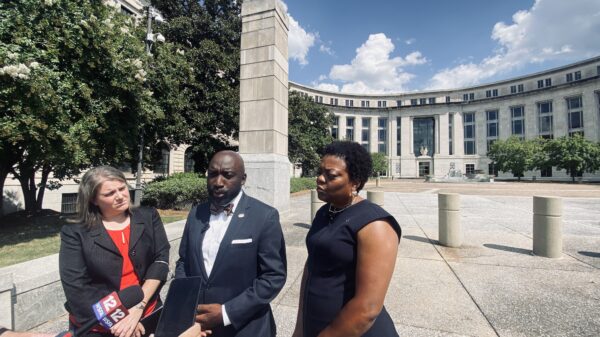By Josh Moon
Alabama Political Reporter
It is apparently lawsuit season at Alabama State University.
Over the past two weeks, the University has been hit with three lawsuits, including a Federal suit involving racial discrimination and another suit over the school’s often-contested food services contract. In addition to those, the Alabama Media Group, owners of the al.com family of newspapers, has filed a lawsuit alleging ASU placed ads in its publications and then failed to pay half the bill.
The Federal discrimination lawsuit, filed by a white professor, is the second in the last few years to accuse the university of reverse racial discrimination.
Esenc Balam, an associate professor in ASU’s School of Education, claims she was denied a promotion and had planned overseas travel disrupted because her supervisor, Dr. Shirley Barnes, took issue with white professors working at historically black colleges, such as ASU.
Balam’s suit claims Barnes made such comments about white professors, often spoke to Balam unprofessionally and served on a committee that denied Balam a promotion.
ASU has not yet filed a response to Balam’s claims.
Also last week, Gourmet Food Services, the food service provider that has long served ASU, filed a lawsuit alleging the school violated the terms of its contract by not providing GFS proper notice when it hired a new food services company at a recent board meeting.
In an odd and seemingly hasty move, trustees voted two weeks ago to award the campus’ food services contract to Aramark. During that meeting, ASU officials said it couldn’t extend the contract with GFS without violating state laws.
However, in its lawsuit, GFS contends that the bid laws that would make extending the contract illegal don’t apply. It also points out that GFS, as part of the contract, donates thousands of dollars annually to ASU and its football stadium.
It was those donations, coupled with the costly penalties of breaking the contract, that led former ASU President Gwendolyn Boyd to forego her efforts to kill the GFS contract three years ago. Boyd claimed then that student complaints about the food service and quality of food led to her decision to make the change.
Ultimately, however, she backed away and the five-year GFS contract, which was signed in 2012, moved forward. Under the terms of that contract, specific steps must be taken by either the university or GFS in order to end the contract and to prevent automatic renewal of it every five years. GFS contends ASU failed to follow those steps.
ASU also has not responded to that lawsuit.
And finally, Alabama Media Group claims ASU has failed to pay a $2,800 bill for advertising it purchased in 2014.
In the lawsuit filed last week in Montgomery Circuit Court, Alabama Media Group has provided a signed contract showing the total cost to be approximately $5,600 for the ad. It is suing ASU for the back half of that amount and for attorneys’ fees and interest.


















































